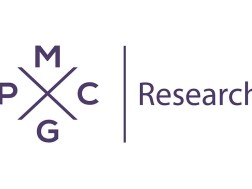PMC Research published a report on Georgian Economic Climate. In a survey of Georgian economists conducted in Q2 of 2023, Georgia’s present economic situation was assessed positively. Their assessment of the present economic situation has improved compared to both - Q1 of 2023 as well as Q2 of 2022.
The surveyed economists’ predictions for Georgia’s economic situation for the next six months are negative. Their expectations in this regard have slightly worsened even compared to the already negative predictions they made in Q1 of 2023, and have significantly worsened compared to the positive expectations recorded in Q2 of 2022.
In addition to assessing the current economic situation and gathering expectations for the next six months, the surveyed experts also made predictions with regard to Georgia’s main economic indicators. According to the results of the survey:
❑ The expected real GDP growth for 2023, on average, is 6.1%. Interestingly, this is more optimistic than the assessments made during the last quarter (Q1 of 2023), when the surveyed economists expected real GDP growth of 5.5% for the year.
❑ The inflation rate (year-on-year) is expected to decrease for the next six months, with the expected rate of inflation for 2023 being 5.1%.
❑ The volume of exports is expected to increase in the coming six months, compared to the corresponding period of the previous year; and
❑ The volume of imports is also expected to increase in the coming six months, compared to the corresponding period of the previous year.
The surveyed economists were asked to identify which factors they deemed to currently pose the greatest threat to the Georgian economy.
Russia’s war on Ukraine was assessed as a very high threat to the Georgian economy by 47% of respondents and as a high threat by 16%. Accordingly, in total, 63% of surveyed economists consider the war to represent a high or very high threat.
Similarly, 63% of surveyed economists named skills mismatch and the same percentage cited a labor shortage as being a high or very high threat.
Rising cost-of-living problems were also highlighted as posing a high or very high threat to the Georgian economy by more than half of the surveyed economists (58%).
Of the surveyed economists, 42% consider exchange rate fluctuations to pose a moderate threat to the Georgian economy.
On the topic of the national currency, the economists were asked to assess the significance of certain factors in relation to the strengthening of the GEL (against US dollar) during Q2 2023 (GEL has somewhat depreciated against USD dollar in recent weeks, but remains stronger compared to Q2 of 2022).
About 90% of the surveyed economists assess immigrant inflows to have had a high or very high impact on the strengthening of the GEL during Q2 of 2023.
❑ Almost 80% of respondents highlighted remittance inflows as of the most significant factor influencing the strengthening of the national currency (42% assessed this factor as having had a very high impact, and 37% stated it had had a high impact).
❑ Tourist inflows were also highlighted as having had a high or very high impact by most of the surveyed economists (74%).
❑ Meanwhile, increases in exports and foreign direct investment inflows were assessed as having had either a low impact or no impact at all by the vast majority of experts (by 58% and 48% respectively).
As more than one year has passed since Russia launched its war on Ukraine in February 2022, the surveyed economists were asked to assess the overall impact of the war on the Georgian economy. Interestingly, in Q2 of 2022 (when the war had just begun), the surveyed economists negatively assessed the present as well as future economic climate in Georgia, mainly on account of how they thought the war would impact Georgia.
❑ Nearly half (47%) of respondents are uncertain about the overall impact the war in Ukraine had on the Georgian economy.
❑ Meanwhile, 32% of the surveyed economists assess the impact of the war on the Georgian economy as positive, and 5% even assess it as very positive.
❑ Only 11% of economists surveyed in Q2 of 2023 assess the impact of the war as negative, and none of them assess it as very negative.
The surveyed experts were also asked to assess the decision of the National Bank of Georgia (NBG) (announced on 10 May 2023) to loosen its monetary policy and decrease the policy rate by 0.5 percentage points from 11% to 10.5%. Of note, until this decision, the NBG had kept the rate unchanged at 11% since March 2022.
❑ Almost all of the surveyed economists (90%) either completely agree (37%) or agree (53%) with the NBG’s decision.
❑ None of those surveyed completely disagree with the NBG’s decision.
Following the recent failure of the US's regional banks - Silicon Valley Bank, Signature Bank, and First Republic – and the acquisition of Credit Suisse, the surveyed economists were asked to assess the impact of these global shock waves of uncertainty across global financial markets on the Georgian economy.
❑ More than half (63%) of respondents expect that this recent turmoil in the global banking sector will have only a minor impact on the Georgian economy.
❑ Some economists (16%) believe that these events could have at least a moderate impact and 10% think that they will not have any impact at all on the Georgian economy.
















